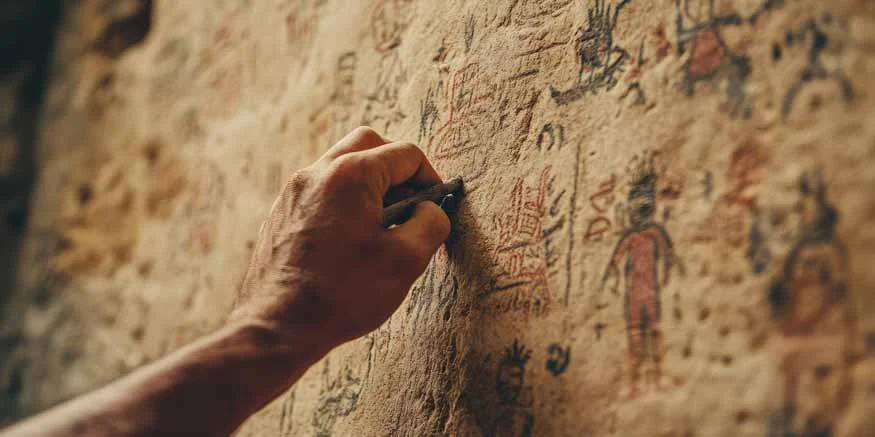The Importance of Studying History: Why Does It Matter?
What is History?
To understand the importance of studying history, we first need to define what history is. History is the study of past events, particularly those related to human affairs, and it involves examining evidence such as artefacts, narratives, and inscriptions. This helps us understand how human societies have evolved and changed over time.
Structuring History Education for Different Grades
History is a vast subject, and teaching it within a limited timeframe can be challenging. Therefore, deciding what to teach at different educational levels must be done thoughtfully and carefully. An effective and well-designed curriculum should be convenient for teachers to follow, well-planned, and structured in a logical and sensible manner.
By thoughtfully designing the curriculum, history education can be engaging and enlightening, helping students understand their place in the world and the significance of historical events.
Types of History
History can be categorised in various ways:
- Political History: Focuses on political events, leaders, and governments.
- Social History: Examines the everyday lives of people and societal changes.
- Economic History: Looks at economic systems, practices, and developments.
- Cultural History: Studies cultural practices, art, and intellectual achievements.
- Military History: Covers wars, battles, and military strategies.
- Intellectual History: Focuses on ideas, philosophies, and the evolution of thought.
Why is History Important?
The study of history plays a vital role in helping students learn from the past to shape a better future. It imbues values such as pride, respect, tolerance towards diversity, and an understanding of the economic, social, and political life of past generations. It also helps connect the dots to understand how present societies have evolved.
Often, history is seen as a dull subject filled with dates, timelines, names of rulers, and events, but its significance goes far beyond just memorising these details. Understanding history is crucial as it provides a window into the past, showing us how the world we live in today came to be.
In essence, “History is important because it explains why we are the way we are.”
Students need to see history not merely as a collection of facts but as a way of thinking. They must develop the ability to make connections between events, processes, and developments across different places and times, recognising the interconnections between different societies and cultures.
Also Read: Why is it Important to Study Ancient Civilisation – Benefits
Why is Studying History Crucial?
- Understanding the Present Through the Past: One of the most valuable aspects of studying history is the opportunity to learn from past successes and mistakes. Historical events often reveal patterns and trends that can help us make informed decisions today. By examining the causes and consequences of past actions, we can make wiser choices and avoid repeating mistakes.
- Fostering Intellectual Growth: History cultivates skills such as reading, analysis, critical thinking, and forming conclusions. Historical texts keep the past alive, offering insight into how human thought and interactions have evolved, ultimately shaping the humans we are today.
- Appreciating Diversity: Studying history broadens students’ understanding of different cultures and perspectives. By learning about diverse groups and their experiences, students develop empathy and a deeper appreciation for humanity’s diversity. This awareness promotes a more inclusive worldview, enabling students to become socially tolerant and embrace diversity with open minds.
- Connecting to Heritage: History helps us connect with our roots, whether through family histories, national milestones, or global events. It provides a sense of identity and belonging, fostering pride in one’s heritage, community, or nation.
- Developing National and International Values: History instils patriotism by teaching students about the struggles of past generations to achieve freedom and progress. It also shows how nations support one another, forming the basis for international cooperation. By studying world history, students learn that despite different customs and institutions, people everywhere share common goals. Understanding this fosters universal understanding and tolerance, promoting peaceful coexistence and harmony among nations.
The Need to Study History
In today’s rapidly evolving world, students often ask, “Why should I study history?” This question is common, especially with so many other subjects vying for their attention. However, history is not just an academic subject; it’s a gateway to understanding the complexities of the present and shaping a better future.
Making History Engaging
Bringing history to life through active learning methods and multimedia resources can make the subject more engaging and relatable for students. Debates, role-playing, and simulations allow students to immerse themselves in different perspectives, fostering critical thinking and a deeper understanding of historical narratives.
Incorporating diverse viewpoints helps students see that history is an intricate web of experiences from various groups, reducing biases and broadening their perspectives. Using films, documentaries, interactive maps, and digital archives provides dynamic and accessible ways to explore history. Connecting historical events to the present day and exploring local history or cultural traditions can make the subject more personally meaningful. By making history interactive, inclusive, and relevant, educators can ignite curiosity and deepen students’ appreciation for the subject.
Conclusion
The study of history is more than just an academic requirement; it is essential for understanding the world around us. By learning about the past, students develop critical thinking skills, cultural awareness, and civic engagement. Most importantly, history provides valuable lessons that help us navigate the present and shape our future. The next time you question the relevance of history, remember: it is the key to unlocking the complexities of our world and our place within it.









